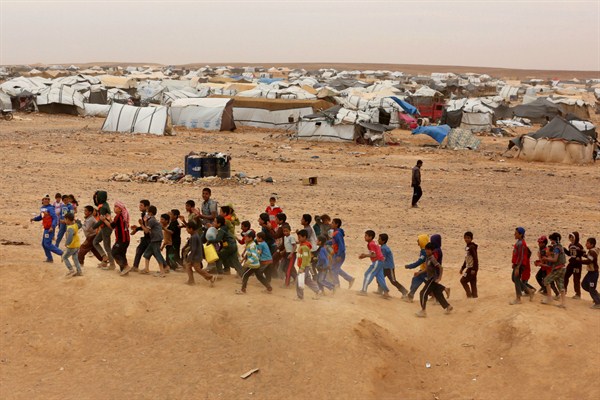The Syrian war has laid bare the inadequacy of current international responses to refugees and the global system in place to protect them. While the number of refugees arriving in Europe from Syria and elsewhere has slowed in recent months and the topic has largely faded from the front pages of newspapers, this lull is likely to be temporary. The slowdown is largely the result of the European Union’s controversial agreement with Turkey, which requires Ankara to improve conditions for refugees and crack down on illicit departures to Europe in exchange for economic aid and visa-free travel within the Schengen zone for Turkish citizens; the EU has yet to fulfill that pledge.
Yet this deal is precarious. When the European Parliament voted to suspend ongoing talks over Turkey’s EU accession in late November, Turkish President Recep Tayyip Erdogan responded, “If you go any further, these border gates will be opened. . . . Do not forget, the west needs Turkey.”
Even if the Turkey deal is successful, it will do little more than paper over the cracks in the global refugee-protection regime. The number of refugees that have died in the Mediterranean this year—4,699 migrants—is higher than in 2015. Millions worldwide find themselves stuck in the limbo of refugee camps or, increasingly, abandoned in urban environments with little hope of resolving their plight. The number of displaced people worldwide—65.3 million—has reached levels unprecedented since the end of World War II. The current regime is inequitable and plagued by norm violations; it evinces a lack of cooperation; and, most of all, often fails refugees, leading many to risk their lives in a search of durable protection.

